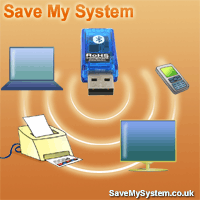Where did the GPS system come from and how does it work? While it wasn't always available to the public, it has quickly evolved as the favorite means of navigation by nearly everyone. The Global Positioning System (GPS) has become the de facto navigation system for the entire world. Today, you can find a GPS system in almost every new car model, on cell phones, and several other devices.
The GPS system was developed exclusively for and by the United States military. In'83, however, after a Korean flight was shot down by Russia for being in the wrong airspace, Ronald Reagan made it available to the masses. He believed that the world needed this technology in order to avoid disasters like the Korean flight. Since then, it has evolved into much more than a military device.
The theory behind global positioning is simple, but its implementation is rather complex. The U.S. government has approximately 30 satellites in orbit at any given moment. These satellites send out a constant stream of microwave signals back down towards the earth. A GPS tracking system on the ground receives the signal from the satellite. It then calculates the exact position, direction, and speed of itself based on these signals. Each time the receiver gets a signal from the satellite, the new calculations are made immediately then relayed as coordinates.
Millions of vehicles are now equipped with GPS tracking systems. They tend to be reasonably priced and easy to install. They can all provide turn-by-turn directions to any contiguous location. Most are even voice enabled, telling you to "turn at the next right" so you can keep your eyes on the road and hands on the wheel. One of the newest devices to get GPS capabilities is the iPhone. Having detailed maps in your cell phone opens up a world of possibilities for everyone.
Indeed, GPS is extraordinarily useful. To say global positioning technology is useful is about as insightful as saying a hammer is useful. If you're lost, you will certainly be grateful for it. GPS devices are affordable conveniences that are now poised to become as ubiquitous as hammers. Navigate your way home, no matter where life takes you.
The GPS system was developed exclusively for and by the United States military. In'83, however, after a Korean flight was shot down by Russia for being in the wrong airspace, Ronald Reagan made it available to the masses. He believed that the world needed this technology in order to avoid disasters like the Korean flight. Since then, it has evolved into much more than a military device.
The theory behind global positioning is simple, but its implementation is rather complex. The U.S. government has approximately 30 satellites in orbit at any given moment. These satellites send out a constant stream of microwave signals back down towards the earth. A GPS tracking system on the ground receives the signal from the satellite. It then calculates the exact position, direction, and speed of itself based on these signals. Each time the receiver gets a signal from the satellite, the new calculations are made immediately then relayed as coordinates.
Millions of vehicles are now equipped with GPS tracking systems. They tend to be reasonably priced and easy to install. They can all provide turn-by-turn directions to any contiguous location. Most are even voice enabled, telling you to "turn at the next right" so you can keep your eyes on the road and hands on the wheel. One of the newest devices to get GPS capabilities is the iPhone. Having detailed maps in your cell phone opens up a world of possibilities for everyone.
Indeed, GPS is extraordinarily useful. To say global positioning technology is useful is about as insightful as saying a hammer is useful. If you're lost, you will certainly be grateful for it. GPS devices are affordable conveniences that are now poised to become as ubiquitous as hammers. Navigate your way home, no matter where life takes you.
About the Author:
Drivers, parents, and businesses that need GPS tracking systems as a matter of course are encouraged to find the right model for the right occasion.

No comments:
Post a Comment